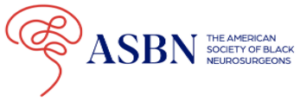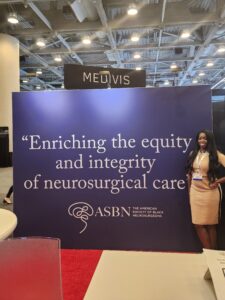Not very long-ago, advocacy was a word used sparingly in the field of neurosurgery, if at all. Its official definition: public support for or recommendation of a particular cause or policy. Neurosurgeons have been on the front line of creating the most sophisticated interventions for some of medicine’s most complex pathology. We walk down the hallways of most academic institutions like we are parting the Red Sea as colleagues; ancillary staff, and patients look on in admiration, respect and reverence for our profession. They call us brilliant, hardworking, natural leaders, conscientious and diligent. They have never, however, called us advocates. Why do we need them to recognize us as advocates now?
In the past three years, the aftermath of the global COVID-19 pandemic and social unrest of 2020 has been analyzed and written about ad nauseam. The reactions of society to the public awakening that inevitably occurred has been both eye opening and bewildering. Many have asked why the societal shortcomings in regard to race and bias not recognized previously – especially in the field of medicine. While many have proposed reasons, I offer one in the context of the formation of The American Society of Black Neurosurgeons (ASBN). Simply put, the world was on fire around all of us, and it no longer was enough to just be a neurosurgeon. y

For a long time, as a neurosurgeon doing the hard surgeries, fighting the good fight in neuro-oncology, or degenerative spine disease, etc., was enough to be viewed as doing your part in society at large. However, as laudable as the profession was, and is, it did not take away the feeling of helplessness as we witnessed a disparate portion of the population pass away from COVID-19 and simultaneously watched black bodies swing from the metaphorical trees of gun violence, racism and prejudice. As professionals, we kept showing up to work hiding the mental fatigue of the constant ping from news alerts letting us know that outside the walls of the hospital, people were fighting a fight we had not yet joined. A group of black neurosurgeons felt that we could not continue to hold onto the respectability of being a good surgeon – we also needed to be good people. Lending a voice to those who looked like us, could be us, was a start in addressing the public health crisis of inequity and prejudice as it relates to medicine in general and neurosurgery in particular.
The ASB was officially incorporated in 2021 as an independent organization with the mission statement of improving public health by supporting Black neurosurgeons and enriching the equity and integrity of neurosurgical care. We aimed not to fix the world at large, but to enhance the world of neurosurgery that we have come to love deeply. James Baldwin said, “I love America more than any other country in this world, and for exactly this reason, I insist on the right to criticize her perpetually.” In this sentiment, we examine this field that we have dedicated our lives to and ask, “how does advocacy fit here?”

As of 2018, of the 5,645 neurosurgeons in the U.S., only 3.8% were black. In the 100-year history of the Society of Neurosurgeons, only four have been Black. In traumatic brain injury, there are statistically significant higher in-house mortality in minority patients versus white/non-Hispanic patients (more than double). Whites are significantly overrepresented in adult trials for metastatic brain tumors and high-grade tumors (91% of enrolled patients). Finally, the decline in the number of black patients receiving stroke intervention during the COVID-19 pandemic versus pre-pandemic grew more than any other group. We saw race and ethnic disparities exist in neurosurgery subtly but loudly in review.
ASBN, since its incorporation, has proposed ongoing initiatives that center around promoting a diverse workforce and decreasing the gap in disparities regarding the application of neurosurgical care and its advances. This includes the intentional mentoring and recruitment of black students into the neurosurgical field. In 2022, the number of neurosurgical interns identifying as black reached 27 – the most ever in one intern class in the history of the neurosurgery residency match. Our latest initiative involves matching attendings, residents, medical students and undergraduates in a vertical mentorship pod to ensure the continuity of guidance and advisership across multiple levels.
Additionally, we have a proposed a task force working closely with organized neurosurgery including the American Board of Neurological Surgery and Accreditation Council for Graduate Medical Education to maintain data that accurately monitors the disparities in neurosurgical care and in the recruitment and retention of applicants, residents and staff. We have made strides in bolstering partnerships with neurosurgical journals such as the Journal of Neurosurgery in contributing to an editorial team specifically tasked to look at research publications centered around diversity, inequity and inclusion.
Our way forward is to re-imagine what are the moving parts that make us neurosurgeons. Innovation, leadership and diligence are historical pre-requisites for those taking on the daunting task of this field. This makes us at best great clinical scientists if we end our definition here. However, compassion in the equitable distribution of our services not only make us advocates but full-fledged neurosurgeons.








